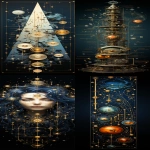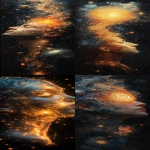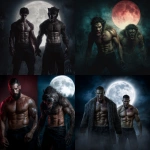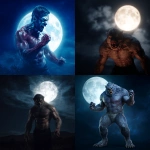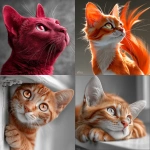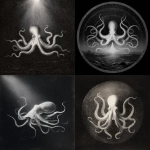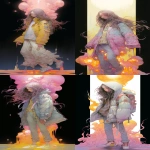Explore the Best AI Image Gallery
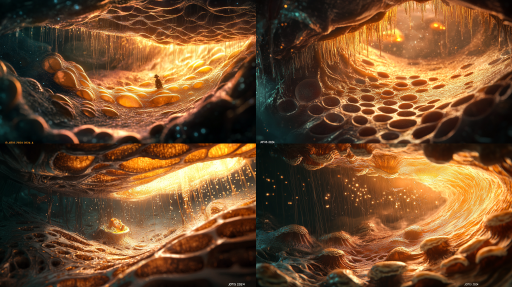
Harnessing AI Images in Marketing: A New Era for Creative Campaigns
In the fast-evolving landscape of digital marketing, the incorporation of artificial intelligence (AI) has emerged as a game changer, particularly through the use of AI-generated images. This innovative technology is not only reshaping the creative processes within marketing but is also influencing the wider creative industry. As brands seek to engage audiences in more personalized and visually appealing ways, the demand for high-quality imagery is skyrocketing. This article explores the impact of AI images in marketing, their potential uses, ethical implications, and future trends.
The Impact on the Creative Industry
Traditionally, marketing relied heavily on human creativity, involving graphic designers, photographers, and artists to conceptualize and create visual content. However, AI images are revolutionizing these practices by offering tools that can generate high-quality visuals at unprecedented speeds. This shift allows marketers to:
- Reduce production time and costs
- Create diverse visual content tailored to specific audience segments
- Experiment with countless design variations without the need for extensive resources
Moreover, AI-generated images empower brands to push boundaries and explore new aesthetics. With algorithms capable of learning from vast datasets, these tools can mimic artistic styles, adapt designs to current trends, and produce unique visuals that resonate with consumers.
Potential Uses of AI Images in Marketing
The applications of AI-generated images in marketing are extensive and continue to grow. Here are some primary uses:
- Personalization: AI can analyze consumer data to create customized images that align with individual preferences, enhancing user experience and engagement.
- Rapid Content Creation: Marketers can generate a large volume of images quickly, ensuring that campaigns are responsive to market changes and consumer behaviors.
- Visual Storytelling: Brands can utilize AI to enhance their narratives visually, creating immersive experiences that connect on an emotional level.
- Social Media Marketing: AI images can be tailored specifically for various social platforms, optimizing engagement through unique visuals that align with platform dynamics.
- Ad Campaigns: AI can produce multiple ad variations for A/B testing, helping marketers identify the most effective designs for conversion rates.
Ethical Considerations
The rise of AI-generated content in marketing raises significant ethical questions. As technology advances, the lines between human-created and AI-generated content blur, prompting discussions on issues such as copyright, authenticity, and representation.
Key ethical considerations include:
- Ownership: Who holds the rights to AI-generated images? As companies utilize AI tools, the legal framework surrounding copyright on generated content remains ambiguous.
- Misrepresentation: AI-generated images can create misleading representations, particularly in product marketing and advertising. Ensuring transparency about the use of AI images is crucial.
- Bias in AI: If the datasets used to train AI models lack diversity, the generated images may inadvertently propagate stereotypes or ignore underrepresented groups.
Future Trends
As technology advances, the role of AI images in marketing is set to expand further. Some predicted trends include:
- Integration with Augmented Reality (AR): AI-generated images are likely to blend seamlessly with AR tools, creating interactive marketing experiences that enhance consumer engagement.
- AI-Assisted Design Tools: Platforms like Canva and Adobe have started incorporating AI in their design suites, enabling marketers to harness AI-generated images easily.
- Increased Customization: Future AI tools may allow an even greater degree of personalization, making it possible for users to create images tailored to unique specifications instantly.
- Improved Ethical Guidelines: As the industry grapples with ethical concerns, businesses may establish stricter guidelines for the use of AI in marketing, ensuring accountability and transparency.
In conclusion, the use of AI-generated images in marketing is redefining how brands interact with consumers. While they offer remarkable advantages in terms of speed and creativity, careful consideration of ethical implications remains essential. As we move forward, the creative industries must embrace this technology responsibly, harnessing its potential while addressing the complexities it introduces.
](https://images.ai-img.art/thumbnails/150/d912741b1ab16ff573f976b1d875060fed0db91bf03973bae8f91338eb0863a8.webp)




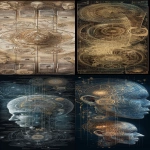







](https://images.ai-img.art/thumbnails/150/6ac2c201a41e2b8724571746d5719f3f25acc52d87a2077f62dcbae44495108e.webp)
](https://images.ai-img.art/thumbnails/150/ddfcd3cfcd96dd8d48f26fc2a0406d5daa1e8ff5c17fd91de6502c7107ca08ac.webp)

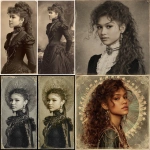
](https://images.ai-img.art/thumbnails/150/99160160c478b524ba92aa139b5b6aef0be4f3368720294c1dc3fe8fc4cbdd90.webp)

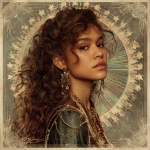
](https://images.ai-img.art/thumbnails/150/c567a1358478083ae41a0cfe6091474ff06e613a84b6c29ca3a26beb2bd76142.webp)
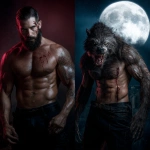
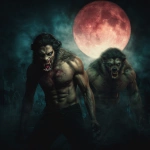
](https://images.ai-img.art/thumbnails/150/0349dd8cf310ed10eba1fc74a6f316b8982c8c2bda7e033d1c1e3dc87d849258.webp)








